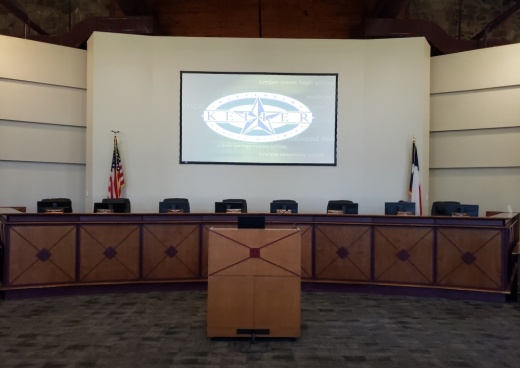The 2021 report reflects the school district's management of its financial resources for the 2019-20 fiscal year.
Scott Wrehe, the district’s chief financial officer, said Keller ISD received a score of 88, which classifies as a B—or “above standard”—rating. Ratings were first announced in August and, after an opportunity for appeal, were finalized in November.
KISD’s score is an increase from the 84 received in the 2020 report, he said.
“Most districts are probably in the A-B range,” Wrehe said. “That’s our goal and, as you saw from last year, we moved up four points, and we’re right at that goal of ours.”
According to the TEA website, 70 is a passing score. Neighboring districts Northwest ISD and Carroll ISD received a 98 and a 96, respectively, which qualified as “superior.”
Wrehe went on to explain the individual categories and scores that made up the final score of 88. Four criteria were scored on a pass/fail basis, with the district passing all four. The district also received high marks on items related to its current assets-to-current liabilities ratio; whether its general fund revenues met or exceeded its expenditures; and its variance comparing its budgeted revenue and actual revenue for the past three fiscal years.
“That’s very accurate budgeting,” Wrehe said.
He also acknowledged some room for improvement.
“Probably the No. 1 thing is there are quite a few indicators that are tied into cash on hand,” Wrehe told trustees. “That’s an emphasis we’re trying to increase ... just continuing to monitor that situation and trying to increase that if we can.”
Keller received six points out of a possible 10 for having 71 days of cash on hand and current investments in the district’s general fund to cover operating expenses.
That was up from four points the year prior, but Wrehe noted that some funds the district received during the summer were not counted toward the cash on hand metric. Trustee Cindy Lotton suggested the volume of construction projects the district has undergone in recent years has also affected its volume of cash on hand.
Finally, Wrehe noted that the district could see a dip in some scores when it is rated for the 2020-2021 and 2021-2022 fiscal years—in 2022 and 2023, respectively—but suggested that such dips would likely be widespread across the state due to challenges brought on by the COVID-19 pandemic.





